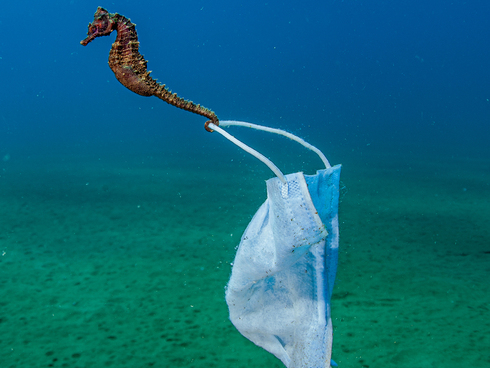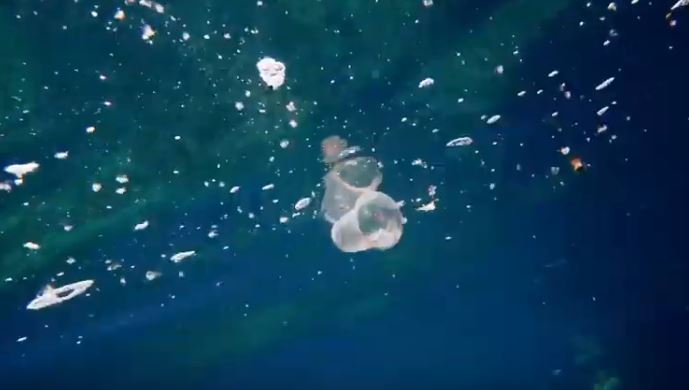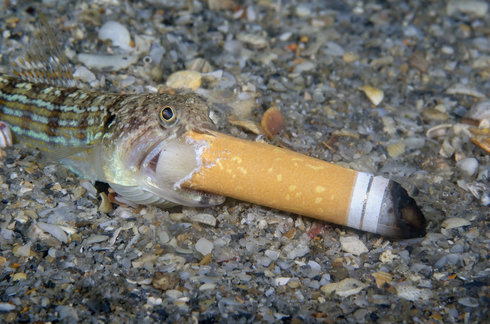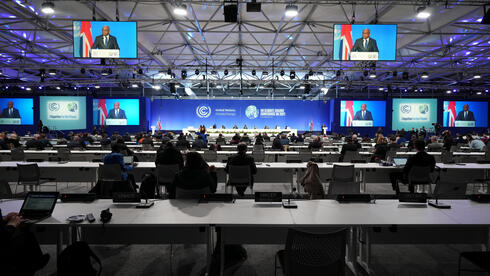Opinion: As the climate conference in Glasgow concludes its first week, it’s clear the danger to the planet is imminent, but each of us can contribute to saving it – whether by using less disposable cutlery or slowing down on fabric softeners
We can all sit and wait for some good news from the climate conference in Glasgow that began earlier this week. It’s easier to just sit and wait while watching various government leaders give speeches with a worried look on their faces, as if this is the first time they hear about the climate crisis.
The floods in Germany, the hurricanes around the globe, the terrible drought in Africa, and melting glacial ice in Antarctica all are signs of the grim future that is ahead for us and our children if we don’t take action soon.

We need to take responsibility, not for the greenhouse gas emissions from power plants in China, but for what we are doing in our own backyard. We need to understand that there is an ocean of possibilities, in which anyone can find a way to contribute – not only when climate conferences make the headlines, but every single day.
Even the smallest deed, done by millions of people, could make a change, and stop the environmental destruction that humankind has caused and still causing across our planet.
For example, we can avoid the usage of disposable cutlery, or at least minimize it.
Right now, some 15 million tons of plastic are thrown away every year all over the world, one-third of the quantity comes from disposable cutlery, and a lot of it is washed into the oceans.
It used to be a luxury, and everyone got along very well without disposable cutlery, we need to go back to those times. It’s not a step back, but a big step forward towards saving our planet. We should also save on plastic bags and opt to use non-packaged agricultural products, which are not packed in plastic boxes that take hundreds of years to decompose.

We need to reduce our consumption all across the spectrum.
Celebrating birthday parties without the need for the entire kindergarten to bring a pile of plastic toys, the majority of which are thrown into the trash. We can also buy fewer clothes, especially if they are made in the sweatshops and sold for some NIS 20.
Instead, we can pass the clothes between family members and friends, and the rest give to the needy. We can also give up precious clothing brands that are shipped across the ocean and pollute the air, and buy local.
Saving electricity can also make a difference. Even if the use of air conditioning all night only costs NIS 5, and the use of the fan costs NIS 1. It’s not just about the money, electricity is fuel, and fuel is air pollution.
Air-dry laundry if possible to use the dryer less and give up on fabric softeners since it pollutes our water.
Save water! Yes, we have desalination plants but think about what happens to all the water with a high concentration of salt that is spilt back to the ocean, who would love that? The fish? Not exactly.

Also, remember that every piece of paper was once part of a tree, which was part of the forest, which was part of our childhood landscape. It’s just a place to hike in and relax but also a place that contributes to the quality of air that we breathe and insures habitats for hundreds of animal species, which disappear at a terrible, heartbreaking pace these days.
Millions of tons of paper is thrown away every year in Israel, less than a third is collected, and less than a quarter is recycled. But before recycling, we must first reduce the amount we use.
We can also reduce our meat consumption since some 20% of greenhouse gas emissions are coming from commercial meat production. An average cow emits about 150 liters of gas a day, and to make one kilogram of meat, you have to invest 150 liters of water on a daily basis. Not to mention the abuse these animals go through.

So, what else? Walk don’t drive, leave a clean environment, pick up the trash even if you didn’t throw it away. Good people do good things and see good in others. Plant more fruit trees in gardens even if they’re public, grow tomatoes in pots, plant flowers.
And remember the Glasgow summit will be over in a week, and in two weeks, the headlines will fade away. But this planet, this land, belongs to us and our children, and our children’s children. We’ve got one planet and one chance to save it.
As reported by Ynetnews
